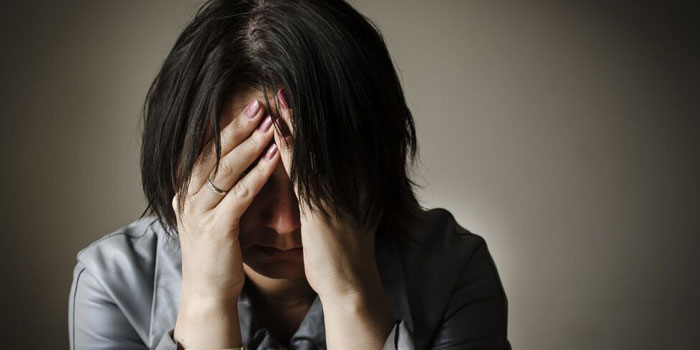Abortion was legalized nationwide 45 years ago when Roe v. Wade was decided. Since then, almost 60 million babies have been aborted. The loss of these lives is an unspeakable tragedy, but a single abortion has more than one victim. Mothers often have to grapple with the onslaught of negative emotions that come after abortion, even when they describe themselves as “pro-choice.”
At Marie Claire, Sarah Bregel wrote about her abortion story and the grief that followed. While she was in college, Bregel became pregnant by a man with whom she had an on-again, off-again relationship. She cried, and almost immediately decided to schedule an abortion at Planned Parenthood. And Bregel was sad about her decision, though she quickly decided to push those feelings away.
“Why should I grieve, after all?” she asked. “I had known immediately, without doubt, what I had to do, and had shared my plan with my quasi-boyfriend. Any feelings he had were silent and short-lived—he got to forget what he never wanted to know in the first place. When I told him I was going to have an abortion, he was clearly relieved. I didn’t mind his transparency. But he didn’t ask how I felt, not a moment or a week or a month later. He never brought it up at all.”
Bregel likely had an aspiration abortion, as she was in her first trimester. As explained by former abortionist Dr. Anthony Levatino, this procedure involves first dilating the woman’s cervix, and then using a powerful suction catheter to remove the preborn baby from the womb. The abortionist then uses a curette to scrape the woman’s uterus and make sure that they get all of the baby’s remains.
Bregel describes it as “more painful than I’d anticipated.” She tried to get in touch with the father of the baby, but he refused to answer the phone, and she later found out that while she was aborting his child, he was hooking up with another ex.
After a few years, Bregel began dating someone else, and again got pregnant unexpectedly. This time, though, she decided to keep the baby, and she now is the mother to two children. “It is the greatest challenge I’ve ever known,” she said. And while she still says she doesn’t regret her abortion, it has nevertheless come back to haunt her.
When I first felt my daughter kick inside me, I put my hand on my belly and sensed her strength. It struck me that if I had done nothing, I would’ve felt those kicks years before. I have friends now with children a few years older than mine. Sometimes I find myself watching their sons and daughters, understanding that the child I didn’t have would be just their age.
In these times, I’ve gone down the rabbit-hole of imagining my almost-child and I’ve grieved. The grief comes out of nowhere and hits me in the chest. Sometimes I cry in the shower and my heart aches with the bitterness of knowing there would’ve been another person in the world had I chosen differently. I barely stopped to consider it then. I hadn’t envisioned another choice because, to me, it didn’t really feel like one. My mind was made up then, but I’m a different person now. I’m a mother and so my heart aches like only a mother’s can.
Bregel insists that she still supports legalized abortion, yet she continues to struggle with grief and, to an extent, regret. And she’s not alone. A recent study found that a majority of women said there were no positives to having an abortion, and the majority of scientific data shows that women are at high risk for negative psychological consequences after having an abortion, including anxiety, depression, suicidal behavior, and drug and alcohol abuse. Many women have also spoken out about why they regret their abortions, explaining that the pain still haunts them years later. Even men can be negatively affected by abortion.
This grief is not unknown to the abortion industry, either; according to former Planned Parenthood manager Crystal Eldridge, they kept grief journals in recovery rooms. “The women would cry,” she said. “99% of people were not happy, and there were journals in the back room — in the recovery room — that the women were encouraged to write in, to kind of get their feelings out. And I could never read them in full because I cried too hard.”
Pro-abortion advocates claim that abortion has been positive for women, something that has empowered them and improved their lives. But has it really? Abortion doesn’t solve the problems that drive women to seek them out; it helps to perpetuate the damaging cycle. It allows for the status quo to remain the same. And in the meantime, millions of women have been left grieving and damaged in its wake. Is that really progress?







